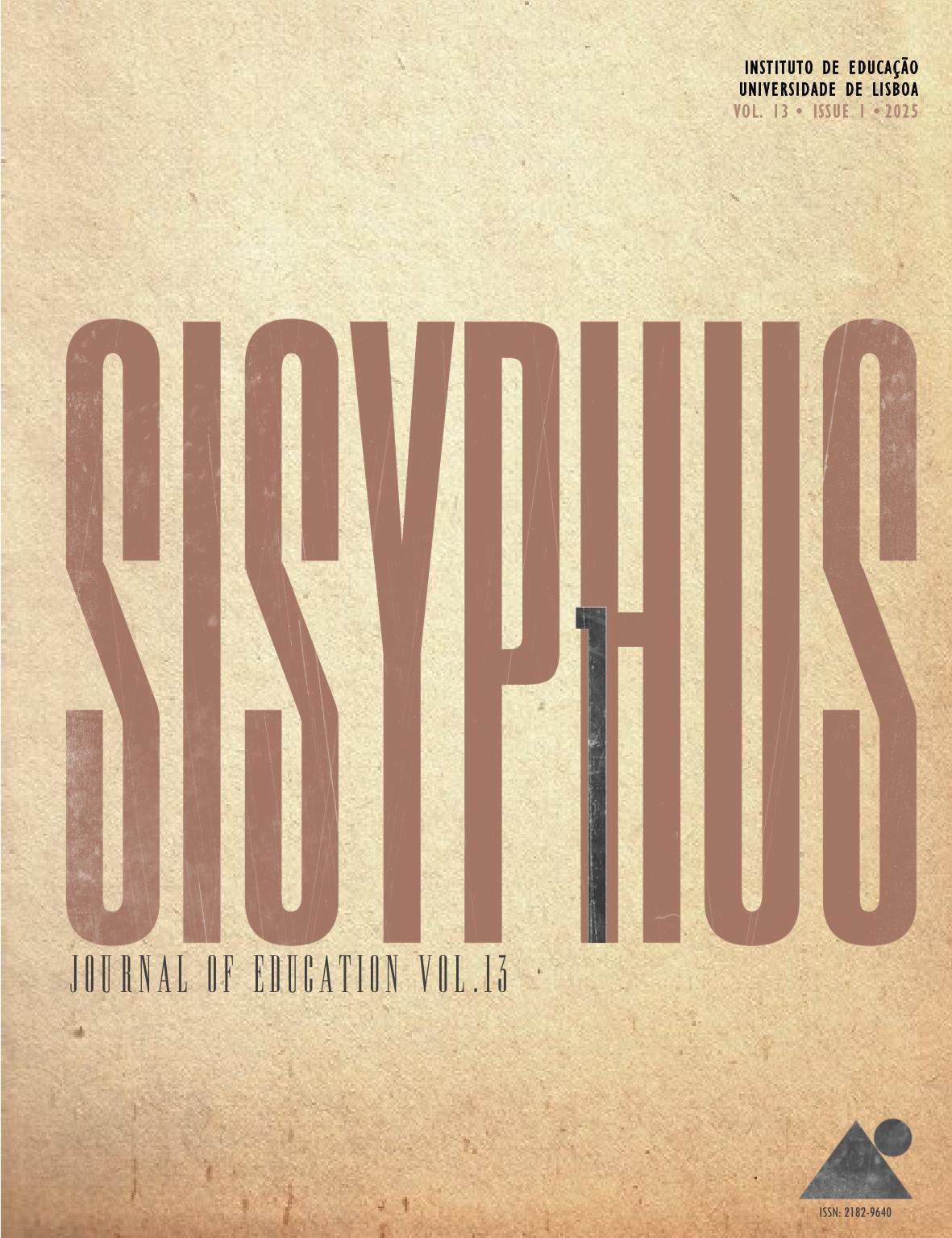The Theatre of The Oppressed Impact on the Resolution of Socio-Scientific Issues
DOI:
https://doi.org/10.25749/sis.39108Keywords:
engagement, interdisciplinarity, socio-scientific issues, theatre of the oppressed, scientific literacyAbstract
Student engagement in science subjects is closely linked to cultural diversity, considering factors such as gender, social class, and ethnicity, as well as the ways young people relate to science. To understand what influences this engagement, it is essential to observe how students experience and express the knowledge they acquire. Interdisciplinarity with the Theatre of the Oppressed can create more inclusive teaching experiences, fostering participation and empowerment. This study aims to understand how students engage in interdisciplinary activities combining Science and Theatre by analysing discursive interactions during an activity on bat ecology. Using a case study approach the research identified various types of engagement and observed how the Theatre of the Oppressed influences the resolution of socio-scientific issues. It enhances discussions and problem-solving by addressing subjectivities, rationality, and the multiple factors influencing decision-making.
Downloads
References
Azevedo, R., Ghedin, E., Silva-Forsberg, M., & Gonzaga, A. (2013). Questões sociocientíficas com enfoque CTS na formação de professores de Ciências: perspectiva de complementaridade. Amazônia: Revista de Educação em Ciências e Matemáticas, 9(18), 84-98. http://dx.doi.org/10.18542/amazrecm.v9i18.2025
Barbosa, A. M. T. B., & Da Cunha, F. P. (2010). A abordagem triangular no ensino das artes e culturas visuais. Cortez Editora.
Boal, A. (1997). 200 exercícios e jogos para o ator e o não-ator com vontade de dizer algo através do teatro. Civilização Brasileira.
Boal, A. (2005). Teatro do oprimido e outras poéticas políticas. Civilização Brasileira.
Camargo, G. H. (2020). Estratégias enunciativas e engajamento em uma sequência didática investigativa sobre biodiversidade. (Dissertação de Mestrado, Ensino de Ciências - Física, Química e Biologia). Universidade de São Paulo, São Paulo, Brasil.
https://doi.org/10.11606/D.81.2020.tde-17062020-140211
Chen, L., & Xiao, S. (2021). Perceptions, challenges and coping strategies of science teachers in teaching socioscientific issues: A systematic review. Educational Research Review, 32, 100377. https://doi.org/10.1016/j.edurev.2020.100377
Conrado, D. M., & Nunes-Neto, N. (2018). Questões sociocientíficas e dimensões conceituais, procedimentais e atitudinais dos conteúdos no ensino de ciências. In D. M. Conrado & N. Nunes-Neto (Orgs.), Questões sociocientíficas: fundamentos, propostas de ensino e perspectivas para ações sociopolíticas (pp. 77-118). EDUFBA. https://doi.org/10.7476/9788523220174.0005
Engle, R. A., & Conant, F. R. (2002). Guiding Principles for Fostering Productive Disciplinary Engagement: Explaining an Emergent Argument in a Community of Learners Classroom. Cognition and Instruction, 20(4), 399-483. https://doi.org/10.1207/S1532690XCI2004_1
Flick, U. (2008). Introdução à pesquisa qualitativa. 3. Artmed editora.
Freitas, N. M. da S., & Gonçalves, T. V. O. (2018). Práticas teatrais e o ensino de Ciências: o teatro jornal na abordagem da temática do lixo. Educar Em Revista, 34(68), 199-216. https://doi.org/10.1590/0104-4060.54660
Hancock, T. S., Friedrichsen, P. J., Kinslow, A. T., & Sadler, T. D. (2019). Selecting Socio-scientific Issues for Teaching. Science Education, 28, 639-667. https://doi.org/10.1007/s11191-019-00065-x
Hernández-Ramos, J., Pernaa, J., Cáceres-Jensen, L., & Rodríguez-Becerra, J. (2021). The effects of using socio-scientific issues and technology in problem-based learning: A systematic review. Education Sciences, 11(10), 640. https://doi.org/10.3390/educsci11100640
hooks, B., & Libanio, B. (2020). Ensinando Pensamento Crítico: Sabedoria Prática. Editora Elefante.
Kelly, G. J. (2014). The social bases of disciplinary knowledge and practice in productive disciplinary engagement. International Journal of Educational Research, 64, 211-214. https://doi.org/10.1016/j.ijer.2013.07.008
Kotler, R., Rosario, M., Varelas, M., Phillips, N. C., Tsachor, R. P., & Woodard, R. (2024). Latinx students embodying justice‐centered science: Agency through imagining via the performing arts. Science Education, 108(3), 851-889. https://doi.org/10.1002/sce.21859
Motokane, M. T., & Pereira, M. (2017). Validation and production of inquiry didactic sequences of biology. Conexão Ciência (online), 12, 424-427.
Preti, D., & Brait, B. (2005). O discurso oral culto. Humanitas Publicacoes Fflch/Usp.
Sadler, T. D., Foulk, J. A., & Friedrichsen, P. (2017). Evolution of a model for socio-scientific issue teaching and learning. International Journal of Educational Mathematics, Science and Technology, 5(2), 75-87. https://ijemst.net/index.php/ijemst/article/view/110
Sant’Ana, C. de F., & Moreira, L. M. (2022). A perspectiva do Teatro do Oprimido como metodologia no contexto da Educação em Ciências: Uma revisão sistemática de artigos científicos. Educação, Ciência e Cultura, 27(2). https://doi.org/10.18316/recc.v27i2.8604
Sasseron, L. H., & de Souza, T. N. (2019). O engajamento dos estudantes em aula de física: apresentação e discussão de uma ferramenta de análise. Investigações em Ensino de Ciências, 24(1), 139-153. https://doi.org/10.22600/1518-8795.ienci2019v24n1p139
Souza, M., Salgado, P., Chamon, E., & Fazenda, I. (2022). Interdisciplinaridade e práticas pedagógicas: O que dizem os professores. Revista Portuguesa de Educação, 35(1), 4-25. https://doi.org/10.21814/rpe.22479
Valladares, L. (2021). Scientific literacy and social transformation: Critical perspectives about science participation and emancipation. Science & Education, 30(3), 557-587. https://doi.org/10.1007/s11191-021-00205-2
Winner, E., Hetland, L., Veenema, S., Sheridan, K., & Palmer, P. (2020). Studio Thinking: How Visual Arts Teaching Can Promote Disciplined Habits of Mind. In P. Locher, C. Martindale & L. Dorfman (Eds.), New directions in aesthetics, creativity and the arts (pp. 189-205). Baywood Publishing Co.
Wright, D. E. (2020). Imagining a more just world: Critical arts pedagogy and youth participatory action research. International Journal of Qualitative Studies in Education, 33(1), 32-49. https://doi.org/10.1080/09518398.2019.1678784
Yin, R. K. (2015). Estudo de Caso: Planejamento e métodos. 5. Bookman editora.
Downloads
Published
Issue
Section
License
Copyright (c) 2025 Sisyphus — Journal of Education

This work is licensed under a Creative Commons Attribution-NonCommercial 4.0 International License.
Copyright (c) belongs to Sisyphus - Journal of Education. However, we encourage issued articles to be published elsewhere, provided that Sisyphus authorization is asked for and that authors integrate our original source citation and a link to our website.
Author Self-Archiving Policy
Author(s) are permitted to self-archive the final published version in institutional or thematic repositories, and in their personal or institutional websites.
DORA Signer
The Instituto de Educação da Universidade de Lisboa, Sisyphus' Publisher, is a San Francisco Declaration on Research Assessment signer.






